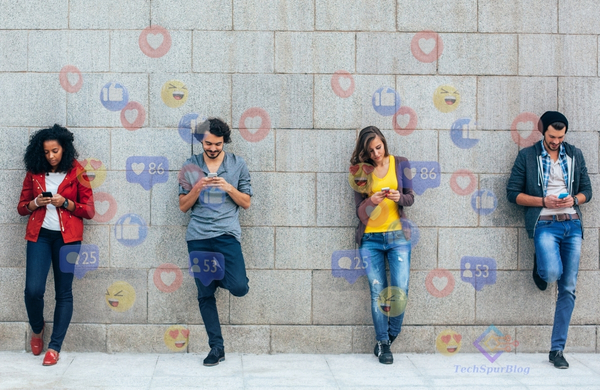
In the present era, social media has become an integral part of our lives. No matter what happens in the world, social media updates us instantly. Many showcase their talents on these platforms, and for some, it serves as a means of income. However, the excessive use of social media can lead to addiction and adversely affect mental health.
Risks of Social Media Addiction
Some individuals spend 5 to 6 hours daily on social media, leading to a dependency similar to substance abuse. Social media addiction can contribute to inferiority complexes, affecting mental health and causing issues like depression. Platforms like Instagram, Facebook, Twitter, and WhatsApp are particularly addictive, enticing users with features like reels and stories.
Also Read: Cracking the Code to Instagram Popularity for Aspiring Influencers
Impact on Mental Health
Constantly sharing personal matters, such as buying a new car or clothes, meeting friends, etc., may create an unrealistic portrayal of one’s life. This can lead to inferiority complexes and deteriorating mental health. Individuals addicted to social media may develop an inferiority complex and experience depression, affecting their overall well-being.
Expert Advice
Health professionals recommend limiting social media usage to less than one hour daily. Creating a routine and allocating specific times for social media can help break the addiction. Nighttime usage, especially before bedtime, can disrupt sleep patterns and contribute to depression. Quality sleep is crucial for mental health, so avoiding social media during the night is essential.
Breaking the Social Media Addiction
Experts suggest uninstalling social media apps for a certain period, such as a few days or weeks. This can help reduce dependence and bring about positive changes in mental and physical health. During this time, engaging in other activities like exercise, reading, or spending time with loved ones can provide a healthier and more balanced lifestyle.
Also Read: Instagram Introduces New Feature: Read Receipts in Direct Messages
Conclusion
While social media has its merits, excessive usage can lead to addiction and negatively impact mental health. It is crucial to be mindful of our social media habits and take proactive steps to break free from addiction. Implementing expert advice, limiting usage, and prioritizing quality time offline can contribute to a healthier and more balanced life

Leave a Reply